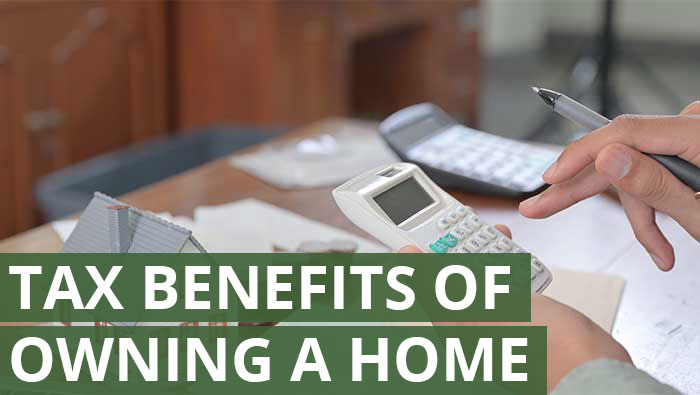There are several tax benefits to owning a home. These include the homestead exemption, tax credits, and tax deductions.
In this article, we’ll break down the basics of homeownership tax benefits. But for more personalized, detailed tax advice, it’s probably a good idea to talk to a tax advisor or your accountant.
Keep in mind, tax laws change pretty often, so you may need to stay up to date each year to see what new tax benefits may be available to you.
Key takeaways
What is a homestead exemption?
What are tax credits?
What are tax deductions?
Can I deduct mortgage insurance fees from my taxes?
What types of home improvements or renovations are tax deductible?
Why you should keep a record of all home renovation receipts in the event that you sell
What is a homestead exemption?
You should find out from your state or local government if you have a homestead exemption.
The homestead exemption allows you to reduce your property tax bill every year.
In addition to that homestead exemption, other tax benefits include both tax credits and tax deductions.
What are tax credits?
A tax credit is money taken off your tax bill. For example, if you receive a tax credit of $400, then you will owe $400 less on your taxes.
One example of this is the Renewable Energy Tax Credit. If you install additions to your home that generate renewable energy (such as solar panels), you may be able to get a credit taken off of your tax bill.
You may also be able to get a tax credit for any improvements that make your home more energy efficient such as home energy audits, skylights, insulation systems, certain types of central air conditioners, heat pumps, furnaces, and water heaters.
For any upgrades you make to your home that make the place more energy efficient, you may be able to get a tax credit for those!
Go to energy.gov to see what tax incentives your state offers for renewable energy improvements.
Another example of a tax credit are Mortgage Credit Certificates.
Certain states have home buyer programs that offer mortgage credit certificates, which give you a credit on your federal tax bill of up to $2,000 per year.
What are tax deductions?
A tax deduction reduces your taxable income. For example, if you make $60,000 per year, and you’re able to deduct $5,000 for that tax period, this reduces your taxable income to $55,000.
Read below for some examples of tax deductions.
- Mortgage Interest: Depending on how much you borrowed and when you bought the home, you may be able to deduct mortgage interest from your taxes.
- Property Tax: Some homeowners can deduct property taxes, state and local income taxes, along with sales taxes. These deductions can reduce your taxable income by up to $10,000 (or $5,000 if married and filing separately).
- Home Equity Debt: If you use home equity debt to make additions or improvements to your home, you can deduct the interest paid on that home equity debt from your taxes.
- Home Office: If you’re self-employed and use part of your house exclusively for business purposes (such as meeting clients), then your office expenses may be deductible as well.
- Medical Equipment: For any home improvements or installations of medical equipment, you may deduct the costs of these features, as long as they’re used to aid you, your spouse, or dependents who live in your home.
Can I deduct mortgage insurance fees from my taxes?
As of 2023, Congress no longer allows new homeowners to deduct mortgage insurance from their taxes.
However, it’s possible this law could change.
Ask your tax advisor for the most updated information regarding mortgage insurance and tax deductions.
What types of home improvements or renovations are tax deductible?
If you made home improvements that were required for medical care, such as making your home more accessible to someone with a disability, then those improvements are tax deductible.
But if you made other home improvements or renovations such as landscaping or replacing your appliances, then those may not be tax deductible while you are living in the home.
However, for any home renovations or improvements that you make, keep a record of all those receipts, as these can come in handy if you sell your home down the road.
This is because the profits that you’d make from selling your home could potentially be taxable. However, keeping a record of all your home improvement costs can help reduce the taxable profit that you make from selling your home.
What if I set up a home office, is that tax deductible?
If you have a home office, you may be able to deduct that portion of your home from your taxable income.
But this tax deduction generally does not apply to W2 employees. This is more for business owners, self-employed people, or contract workers to deduct their home office expenses.
These deductible expenses include both office supplies, furniture, electronics, and utilities such as internet.
What are some non-deductible homeowner expenses?
Here is a list of expenses that generally are NOT tax deductible:
- HOA Dues
- Homeowner’s Insurance for your primary residence. (If it’s a rental property then you may be able to deduct those costs.)
- Appraisal Fees
- Home Improvements That Are NOT Medically Necessary (But keep those receipts in case you sell your home!)
Homeowner Tax Benefits: Summary
- Find out from your state or local government if you have a homestead exemption, as this allows you to reduce your property tax bill every year.
- A tax credit is money taken off your tax bill. One example of this is the Renewable Energy Tax Credit. If you install additions to your home that generate renewable energy (such as solar panels), you may be able to get a credit taken off of your tax bill.
- A tax deduction reduces your taxable income. Some examples of deductible costs are mortgage interest, property taxes, and mortgage points.
- Home improvements that are medically necessary may be tax deductible. And if you work from home, you may be able to deduct your home office costs from your taxable income.
- For other renovations, keep a record of those receipts in case you sell your home in the future. Keeping a record of all your home improvement costs can help reduce the taxable profit that you make from selling your home.
- Keep in mind that tax laws change fairly often. For personalized and up-to-date tax advice, talk to a tax advisor or your accountant.












